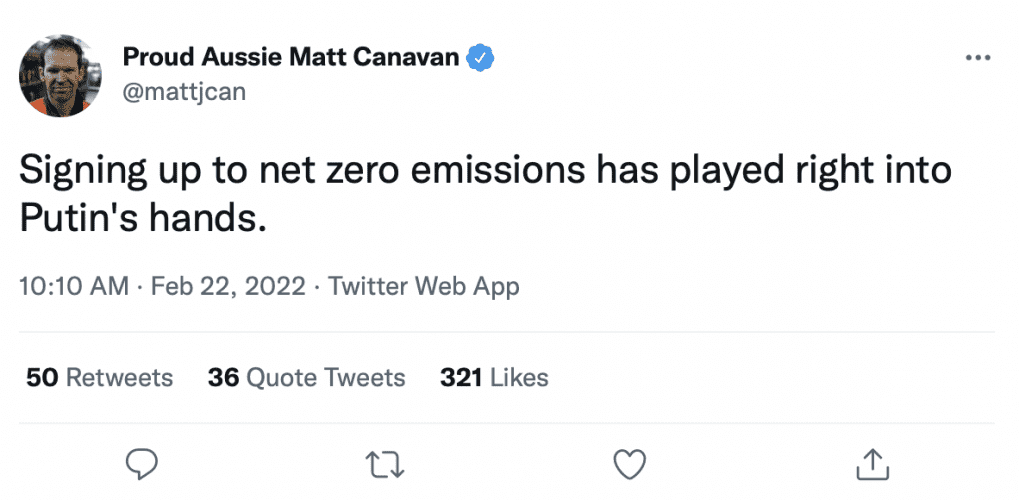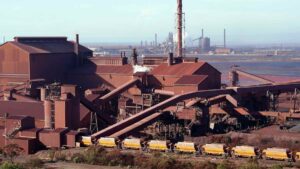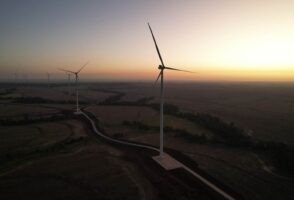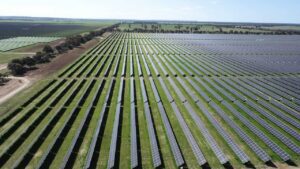The federal Coalition government is giving every indication it will do everything it can to oppose the early closure of Australia’s ageing coal fired generators, in a last ditch attempt to protect its mates, and donors, in the fossil fuel industry.
The response from the Morrison government to the early closure of the country’s biggest coal generator (Eraring), the proposed takeover of the country’s biggest polluter (AGL), and the intention of Mike Cannon-Brookes and Brookfield to close its coal plants as quickly as they can, has been sadly predictable.
Senator Matt Canavan, the coal market fantasist who retains a prominent platform in the Murdoch media and on the ABC, as well as Twitter, called for more coal generators to be built. Which is about as daft as saying that the push for net zero is playing into the hands of aggressive dictators like Putin.
Which is exactly what the “Proud Aussie” did:
In an interview on Sky News, Canavan then went on to repeat the lie that there were “brownouts” in Queensland last month “because we didn’t have enough power” (actually, a car running into a power pole was one of the reasons), again dismissed battery storage as a “joke” and promoted nuclear as the solution.
Prime Minister Scott Morrison, looking for any issue that could possibly serve as a wedge against Labor, said he doesn’t want any coal generators to close early. He wants to “sweat them” till they drop, which presumably means he also wants them to pollute as much as they can for the next 25 years. So much for climate targets.
Energy and emissions reduction minister Angus Taylor, deliberately sidelined by the major players in the market, including the NSW government and AEMO for fear of his meddling, has vowed to continue his push to create a type of ” capacity” market that would underwrite coal fired power stations into the next decade.
What’s the point of all this? Predictable as they are, they underline the difficulties that lie ahead for Australia’s energy transition if the Coalition government is returned to power in May’s election.
Canavan cannot be dismissed as an irrelevance because he is the de facto spokesman for the far right reactionaries in the Coalition, and this disparate group has wagged the tail of government policy since it was elected in 2013.
Morrison can’t be ignored because he is the PM, the man who waved a lump of coal around parliament, and who has absolutely no idea about, and no interest in, the technology changes that are happening around him.
He has mocked big batteries, he has ridiculed electric vehicles, and then tried to pretend he didn’t. He possibly has the power to reject this AGL bid on foreign investment grounds.
Taylor wants the deal scrutinised by the ACCC because Brookfield owns a transmission company in Victoria (Ausnet), not because it owns a coal loader (Dalrymple).
And Taylor, although deliberately sidelined from the big decisions being taken in the industry, because it doesn’t trust him, can still meddle in the market, erect policy bollards and interfere at every turn.
He is almost solely responsible for the lack of private investment in dispatchable capacity in his time of office, and will surely continue to press those buttons to try to create an environment that makes it difficult to allow coal plants to close.
Which is not what Australia needs, or wants.
The message from the federal Coalition is only that closing coal fired power stations early will result in reduced reliability and higher prices.
Nationals deputy leader David Littleproud decided to pitch it as a “billionaires versus the little people” trope. “They (the billionaires) might be able to afford the ideology,” he told Sky. “We’ll make sure we protect the little people.”
Yeah, sure.
As Monash University’s Ariel Liebman noted, if the government actually had a plan, or at the very least a coherent policy, the impact on prices at the customer’s end would have been nil.
“In fact, prices may even reduce as the buyers were setting out to do a managed transition of a very large coal portfolio and replace it with more reliable and cheaper renewable energy plus storage,” Liebman said.
This is the pitch of Mike Cannon-Brookes and Brookfield. They are convinced, like the rest of the market, AEMO and others, that the transition to renewables will deliver lower prices, more jobs, more industry, and lower emissions, but it needs a plan. The government needs to work with the sector, not against it.
“Australia should have the lowest price, energy, electricity in the world. We have all of the assets to make that happen,” Cannon Brookes says. “There’s no logical reason, no economic reason we should not have the cheapest power in the world.”
At least Labor’s Chris Bowen gets it: “The Government needs to prepare and we need alternative plans for more renewable energy, more storage. Governments, State Governments across the country get it. To be fair, across the country, Labor and Liberal (state governments) get it. The Federal Government doesn’t.
“Angus Taylor sitting on the sidelines, didn’t even know about the Eraring decision as the Energy Minister, doesn’t have a plan to improve renewables, doesn’t have a plan to improve storage, doesn’t have a plan to create jobs.
“You can deny this is going to happen and leave communities to suffer when a coal fired power station shuts. You can sell false hope that somehow there might be new coal fired power stations, which won’t be the case, which the Government continues to do, or you have a plan to deal with it.”
There’s an election in May.











